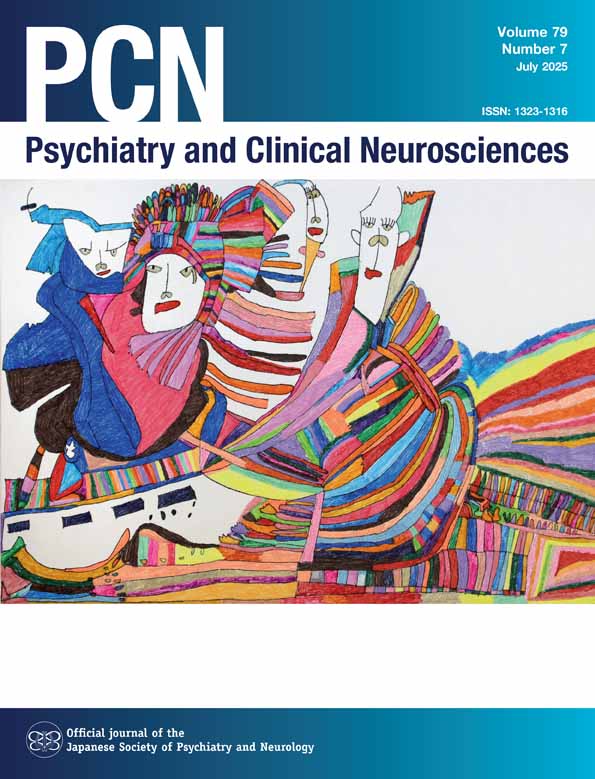Effects of Yoku-kan-san-ka-chimpi-hange on the sleep of normal healthy adult subjects
Abstract
Abstract Yoku-kan-san-ka-chimpi-hange (YKCH) is a drug used for insomnia in Japanese traditional herbal medicine. The present study evaluated the effects of YKCH on sleep by all-night polysomnography using the double-blind method. Yoku-kan-san-ka-chimpi-hange increased the total sleep time significantly, and tended to cause an increase in sleep efficiency and of stage 2 sleep, as well as a decrease of sleep latency and of stage 3 + 4 sleep. There was no apparent influence on rapid eye movement (REM) sleep. In terms of non-REM sleep, the effects of YKCH exhibit a profile similar to those of benzodiazepines.
INTRODUCTION
Yoku-kan-san-ka-chimpi-hange (YKCH) is known to be effective for the treatment of insomnia.1 To date, studies on the therapeutic effects of Japanese traditional herbal medicine on insomnia have dealt mainly with the subjective evaluation of sleep. In the present study, with the purpose of evaluating objectively the effects of YKCH on sleep in normal healthy adults, we performed a double-blind cross-over study using all-night polysomnography (PSG), using Anchu-san as the control drug.
METHOD
It is known generally that the effects of Japanese traditional herbal medicine differ in each case according to the ‘Sho’ of each individual. ‘Sho’ is equivalent to a syndrome, but it comprises not only psychic and somatic symptoms but also signs obtained by a traditional physical examination that focuses on the patient’s constitution, general physical condition, pulse, and abdominal signs, and includes an examination of the tongue.2 As most physicians are not trained to determine ‘Sho’ correctly, a modern diagnosis is also utilized when a prescription is formulated. With this in mind, prior to the PSG study we prescribed YKCH (7.5 g/day for 3 days to be taken three times a day)2 to 20 healthy male adults without considering ‘Sho’ (mean ± SD, 27.1 ± 6.8 years). Informed consent was obtained from all participants before taking the YKCH. From 20 subjects, we selected seven (23.9 ± 2.0 years) who reported that they found it much easier to fall asleep or reported feeling they had slept better. The all-night PSG was performed on these seven selected subjects. The experiment was carried out by the double-blind method, using YKCH and Anchu-san. The latter medicine, which tastes very similar to YKCH, is a drug for gastroenteropathy and has no effect on sleep quality.3 The two experiments were separated by an interval of 1 week, whereby subjects took either medication for 3 days before the experiment night and the night prior to the experiment night was allowed for adaptation. All night PSG were recorded from 23.00 hours to the time when the subject woke up spontaneously next morning or up to 07.00 hours if the subject did not wake up spontaneously. The morning following the experiment night, subjects were asked to report any side-effects such as sleepiness, dizziness, feeling of muscle weakness, etc. Statistical analyses were performed on the sleep variables in each experiment by paired t-test. The level of significance was set to P < 0.05.
RESULTS
Table 1 summarizes the sleep variables when YKCH and Anchu-san are given. Compared with Anchu-san, YKCH increased the total amount of sleep significantly (P = 0.04). Although it was not statistically significant, trends such as decreased sleep latency, increased sleep efficiency, increase of stage 2 sleep, and decrease of stage 3 + 4 sleep were also observed. There was no apparent influence on REM sleep. Also, no subject complained of any side-effects the morning following the experiment night.
| Yoku-kan-san-ka-chimpi-hange | Anchu-san | |
|---|---|---|
| Time in bed (min) | 474 ± 18 | 453 ± 19 |
| Sleep period time | 462 ± 17* | 425 ± 14 |
| Total sleep time | 438 ± 13* | 371 ± 19 |
| Sleep latency | 4.66 ± 1.3 | 10.4 ± 2.7 |
| Sleep efficiency index | 0.95 ± 0.0 | 0.88 ± 0.1 |
| Wake (min) | 23.9 ± 4.6 | 54.3 ± 28 |
| Stage 1 | 47.6 ± 6.4 | 50.6 ± 8.8 |
| Stage 2 | 123 ± 46.1 | 50.6 ± 8.8 |
| Stage 3 + 4 | 39 ± 18 | 52 ± 18 |
| REM sleep | 64.6 ± 11 | 48.6 ± 9.2 |
- * P < 0.05.
DISCUSSION
Benzodiazepines (BDZ) are now used widely as a drug for improving sleep. It has been reported that BDZ shorten sleep latency, increase the amount of total sleep time, cause an increase of stage 2 sleep and a decrease of stage 3 + 4 sleep.4 Compared with Anchu-san, YKCH extended the total sleep time significantly, had no influence on REM sleep, and tended to increase stage 2 sleep and decrease stage 3 + 4 sleep. In terms of non-REM sleep, the effects of YKCH exhibit a profile similar to those of benzodiazepines. Because in the present study the seven responders were selected from 20 subjects based on their self-reports, we recommend that further studies should be carried out on ‘Sho’ and to identify which factors are able to predict those individuals who would respond to YKCH positively.5




